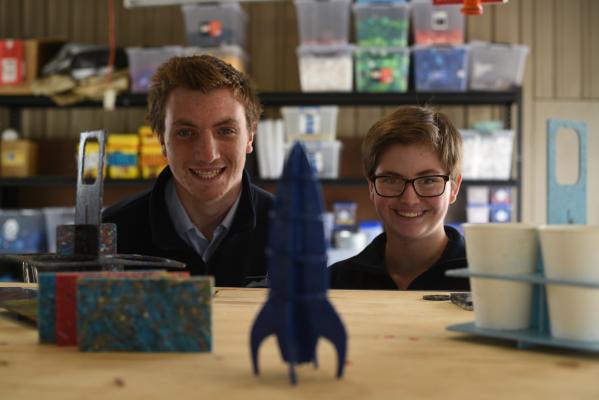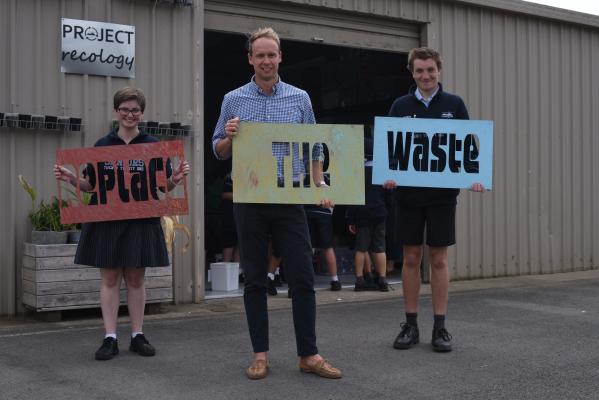
By Brett Kennedy
AN AMBITIOUS vision to become one of the nation’s top sustainable schools is nearing reality for Tenison Woods College with students driving environmental change on campus.
The college’s 1400-strong student united for its Clean Up Australia Day program on Thursday – ahead of Sunday’s national conservation exercise – but sustainability goes far beyond one day for the Mount Gambier institution.
Students of varying ages and year levels regularly come together through the expanding Project Recology program, a unique learning tool transforming waste plastics as part of a circular economy.
It is one promising step in the college’s larger mission to reduce its environmental footprint and arm youth with knowledge and experiences promoting sustainable practices.
A new Year 9 subject – Precious Plastic – has also been introduced this year, with students focused on rethinking waste, following the process from disposal and sorting through to the design, production, marketing and sale of recycled plastic goods.
From phone holders and jewellery to signage and kitchenware, students continue to transform thousands of recyclable bottle lids and other plastics into new, saleable products.
A $20,000 federal community environment grant has helped fast-track the college’s innovative Project Recology scheme, operated from an old groundskeeper’s shed with purpose-made machinery.
College sustainability coordinator Tom Linnell said sustainability was a value-driven ethos, with school initiatives – including an industrial green waste compost program – generating exposure for students to build that value.
“Young people live at such a fast pace and technology is such a key part of their lives and it is very instant,” he said.
“A lot of the stuff we are talking about here has very long-term implications.
“This is giving them a way to play a positive part in the future and it has been very exciting for us as a school.
“I think our young people in regional communities have a real opportunity to stake a claim on what the next iteration of recycling and a circular economy can look like.”
The students’ drive has been matched by the community with businesses and college families collecting and donating plastics to be repurposed, while support has also flowed from varying tiers of government.
Within the school grounds, Year 12 students and sustainability leaders Daniela Ortiz Kaiser and George Wimshurst are championing the cause among their peers.
Daniela said the introduction of Project Recology had boosted awareness among students about sustainability and waste management.
“It is important young people find out what is happening to our planet and pitch in because it all helps,” she said.
George said there had been a notable increase in students wanting to do the right thing and help the school’s sustainability profile.
“From looking back at what other students have done in the past, I thought it would be a good idea to step up and take this leadership role on and get younger people involved in waste,” he said.
The college’s success has been timely as South Australia enters a new era in sustainability with a ban on single-use plastics coming into effect this week.
South Australian environment minister David Speirs said the historic ban – prohibiting drinking straws, stirrers and cutlery from sale, supply or distribution across the state – was protecting the environment for future generations and promoting a circular economy.
“The Marshall Liberal Government is ambitious for this legislation and won’t just stop at straws, cutlery and stirrers with expanded polystyrene cups, bowls, plates and clam-shell containers, and oxo-degradable plastic products to be banned in a years’ time,” Mr Speirs said.
“We will continue to consider more products such as takeaway coffee cups, plastic barrier bags and other takeaway food service items as market demand increases and other sustainable alternatives become available.”
Mr Speirs said March 1, 2021 would forever be a proud day for the state and signified a shift away from a single-use, throwaway mindset.








